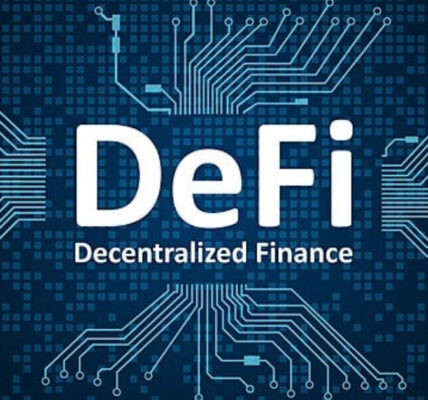The rapid growth of decentralized finance (DeFi) has revolutionized the financial landscape, enabling users to access financial services without relying on traditional intermediaries such as banks or brokers. DeFi protocols, built on blockchain technology, are designed to provide users with greater transparency, security, and autonomy over their financial assets. However, the complexity of these protocols and the underlying smart contracts that govern them presents significant security challenges. In recent years, there have been numerous high-profile hacks and exploits in the DeFi space, resulting in the loss of millions of dollars in user funds.
One of the most effective ways to mitigate the risks associated with these exploits is through rigorous security audits. Security audits are essential in identifying vulnerabilities in smart contracts and ensuring that DeFi protocols are safe for users to interact with. In this article, we will explore the role of security audits in preventing DeFi exploits, how audits are conducted, and why they are a critical component of any DeFi project.
1. Understanding DeFi Exploits and Their Consequences
Before diving into the importance of security audits, it’s essential to understand what DeFi exploits are and how they can affect the security of a protocol. DeFi exploits refer to attacks or vulnerabilities that allow malicious actors to manipulate or bypass the rules of a decentralized financial system for financial gain. These exploits can range from simple coding errors to sophisticated attacks that exploit weaknesses in the underlying blockchain or the way the protocol interacts with external systems.
Some common types of DeFi exploits include:
a. Reentrancy Attacks
Reentrancy attacks occur when a contract makes an external call to another contract, and that contract calls back into the original contract before the first transaction is completed. This can allow an attacker to repeatedly withdraw funds from the contract before the state is updated, leading to a drain on the contract’s funds.
The infamous DAO hack in 2016, which resulted in the loss of millions of dollars, was a reentrancy attack.
b. Flash Loan Attacks
Flash loans are uncollateralized loans that can be borrowed and repaid within a single transaction block. Malicious actors can use flash loans to manipulate the prices of assets in DeFi protocols, exploit price oracles, or manipulate the governance process to gain control of the protocol.
In bZx’s case in 2020, attackers exploited a vulnerability in the protocol’s price oracle using flash loans to manipulate the prices and drain the protocol’s funds.
c. Integer Overflow and Underflow
Integer overflow and underflow are vulnerabilities that occur when a contract fails to properly check the limits of a variable. When a number exceeds its maximum value (overflow) or drops below its minimum value (underflow), it can lead to unintended behavior or exploits. These types of vulnerabilities are common in poorly written smart contracts and can be exploited by attackers to cause disruptions or steal funds.
d. Price Oracle Manipulation
DeFi protocols often rely on external price oracles to determine the value of assets. If an attacker can manipulate the data fed into the smart contract by the oracle, they can trigger unintended actions, such as liquidations or incorrect asset valuations. This type of exploit is especially prevalent in lending and borrowing protocols.
2. Why Security Audits Are Essential
Security audits are critical in identifying and mitigating the vulnerabilities that can lead to DeFi exploits. These audits are thorough reviews of the smart contract code and the underlying protocol infrastructure, conducted by experienced professionals or third-party security firms. The goal of a security audit is to identify potential vulnerabilities, provide recommendations for mitigation, and ensure that the code behaves as expected under all conditions.
Let’s break down the key reasons why security audits are essential for preventing DeFi exploits:
a. Identification of Vulnerabilities
Smart contract code is complex and can contain hidden vulnerabilities that are not immediately obvious to developers. Even experienced developers can overlook security flaws, which can have catastrophic consequences once the contract is deployed to the blockchain. A security audit involves a comprehensive review of the code, identifying weaknesses such as reentrancy vulnerabilities, improper access control, and logical flaws that could be exploited by attackers.
b. Compliance with Industry Standards
The DeFi space is still relatively new, and best practices for secure smart contract development are continually evolving. A reputable audit firm will ensure that the smart contract adheres to industry security standards and best practices, making it less likely to be exploited. Security audits often include checks for known vulnerabilities, such as those listed in the OWASP (Open Web Application Security Project) top 10, and ensure compliance with well-established guidelines like OpenZeppelin’s security standards.
c. Minimizing Financial Risk
The decentralized nature of DeFi means that once a smart contract is deployed on the blockchain, it is immutable—there is no central authority to intervene or reverse transactions. If an exploit occurs, there is no way to recover the stolen funds. The financial consequences of a successful attack can be devastating to both the users of the protocol and the developers behind it.
A security audit helps minimize the financial risks associated with deploying vulnerable contracts by identifying potential weaknesses before the contract is deployed to the blockchain. By catching issues early, developers can fix them and prevent costly exploits.
d. Building Trust with Users
DeFi projects often involve large sums of money, and users want to ensure that their funds are secure before interacting with a protocol. A security audit from a trusted third-party auditing firm helps establish credibility and trust with the community. Users are more likely to interact with a protocol that has been thoroughly audited and proven to be secure.
In addition, many DeFi protocols display their audit results publicly, providing transparency and reassuring users that the project team has taken the necessary steps to secure the protocol.
3. How Security Audits Are Conducted
A typical security audit involves several key stages, each designed to thoroughly assess the security and functionality of the smart contract. Let’s take a closer look at the process:
a. Initial Code Review
The first step in a security audit is an initial review of the smart contract code. Auditors will review the code line-by-line to identify potential vulnerabilities, logic errors, and any other weaknesses that could be exploited. This process often includes checking for common security flaws such as reentrancy vulnerabilities, improper use of data types, and unprotected critical functions.
b. Automated Testing
Automated testing tools, such as MythX, Slither, and Oyente, are often used in the audit process to identify known vulnerabilities and common coding mistakes. These tools run static and dynamic analysis on the code to detect issues such as gas inefficiencies, integer overflows, and logic errors.
While automated tools are helpful, they are not foolproof, and manual testing is still necessary to identify more complex issues.
c. Manual Testing and Exploit Simulation
After the initial review and automated testing, auditors will conduct manual testing to simulate potential attack vectors and verify the contract’s behavior under different conditions. This often involves fuzz testing, where auditors input random or unexpected data to test how the contract handles unusual situations. They may also simulate attacks such as flash loan manipulation or reentrancy attacks to ensure that the contract is resistant to these types of exploits.
d. Audit Report and Recommendations
Once the audit is complete, the auditors will produce a detailed audit report that outlines any vulnerabilities found in the smart contract, along with recommendations for fixing them. The report will typically include:
- A summary of the audit findings.
- A list of identified vulnerabilities, including their severity and potential impact.
- Recommendations for remediation, such as changes to the code or improved security measures.
- An overall assessment of the contract’s security.
The audit report provides developers with actionable insights into how to improve the security of their smart contract before deployment.
e. Remediation and Re-Audit
After receiving the audit report, the development team will address the identified vulnerabilities by implementing the recommended changes. Once the necessary fixes have been made, the auditors will re-examine the contract to ensure that the issues have been resolved and that no new vulnerabilities have been introduced.
4. Top Security Audit Firms in the DeFi Space
There are several well-known auditing firms that specialize in smart contract security audits. Some of the top firms include:
- CertiK: CertiK is one of the most recognized names in smart contract auditing. They offer a comprehensive security audit service, including automated and manual testing, and they have audited some of the largest DeFi projects in the industry.
- Trail of Bits: Trail of Bits is known for its deep security expertise and focus on high-quality audits. They have conducted audits for some of the most prominent DeFi protocols, including Compound and Aave.
- Quantstamp: Quantstamp offers security audits, penetration testing, and code analysis for blockchain projects. They are known for their rigorous auditing process and have audited several leading DeFi projects.
- ConsenSys Diligence: ConsenSys Diligence is a well-respected security firm that offers smart contract audits and security services for Ethereum-based projects. They provide comprehensive audits and security assessments to help ensure that DeFi protocols are secure and reliable.
5. Conclusion
Security audits play a vital role in ensuring the safety and security of DeFi protocols. With the complexity of smart contracts and the significant amounts of money at stake, conducting a thorough audit is an essential step in identifying vulnerabilities and mitigating the risks of exploits. By partnering with reputable auditing firms, DeFi projects can build trust with their users, reduce the likelihood of financial loss, and contribute to the long-term sustainability of the DeFi ecosystem. As the DeFi space continues to grow, security audits will remain a cornerstone of ensuring that decentralized finance remains safe, transparent, and secure for everyone involved.




